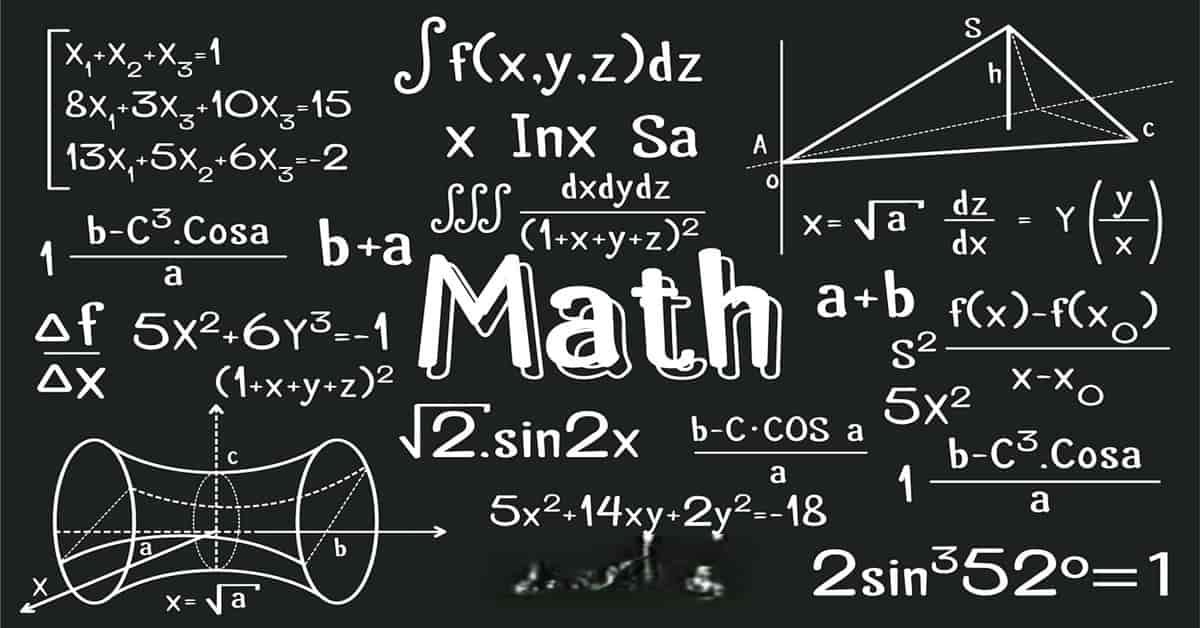Mathematics is often viewed as one of the most challenging subjects, generating both fear and fascination among students. Whether you’re a high school student grappling with algebra or a college student tackling abstract calculus, mastering mathematics requires a strategic approach. This blog post will provide you with a detailed roadmap on how to study mathematics effectively, enhancing your understanding and performance in this essential field.
Understanding the Study of Mathematics
Mathematics is a unique discipline that combines logic, abstract thinking, and practical application. At its core, mathematics isn’t just about numbers and equations; it’s a way of thinking that builds analytical skills beneficial in everyday decision-making.
Why Study Mathematics?
- Critical Thinking: Math improves your logical reasoning and problem-solving abilities.
- Real-World Applications: It has practical applications in various fields, including science, engineering, finance, and technology.
- Enhanced Employability: Employers highly value analytical and quantitative skills, essential in today’s data-driven world.
Setting the Stage for Effective Study
Before diving into study techniques, it’s important to set the right environment and mindset.
1. Create a Conducive Study Environment
- Quiet Space: Find a distraction-free zone where you can concentrate on your work.
- Proper Lighting: Ensure your study area is well-lit to avoid eye strain.
- Organized Materials: Keep your textbooks, notebooks, and stationery organized for easy access.
2. Develop a Positive Mindset
- Embrace Growth: Understand that making mistakes is part of learning. Approach challenges with a growth mindset.
- Set Realistic Goals: Break your study sessions into manageable units. Set specific, attainable goals to build confidence and motivation.
- Stay Curious: Cultivating an interest in how mathematics applies to the real world can enhance your enjoyment of the subject.
Effective Mathematical Study Techniques
1. Understand the Concepts
Mathematics is hierarchical; understanding fundamental concepts is crucial before moving on to more complex ideas.
- Conceptual Learning: Start by grasping the underlying concepts rather than memorizing formulas. For instance, instead of simply learning how to solve quadratic equations, explore why the quadratic formula is structured as it is.
- Use Visual Aids: Diagrams, graphs, and models can often help visualize concepts. Tools such as Desmos for graphing functions can be particularly helpful.
2. Practice Regularly
Mathematics is not a spectator sport; consistent practice is essential.
- Daily Problem-Solving: Allocate a set amount of time each day for solving math problems. This nurtures a deeper understanding and helps reinforce what you’ve learned.
- Diverse Problems: Engage with a variety of problems—easy, moderate, and complex. Mix up the types of problems to develop versatile skills.
- Practice Tests: Utilize past exams or practice tests to simulate test conditions. This approach not only tests your knowledge but also builds confidence.
3. Utilize Resources
In the digital age, an abundance of resources are available to make studying math easier.
- Online Platforms: Websites such as Khan Academy, Coursera, and edX offer structured courses on various math topics, often supplemented with video lectures and exercises.
- Math Apps: Applications like Photomath can help you understand problem-solving steps. However, use them to enhance learning rather than as a shortcut.
- YouTube Channels: Channels such as 3Blue1Brown and Numberphile provide explanations and insights into more complex mathematical concepts in an engaging way.
4. Form Study Groups
Collaborating with peers can foster a supportive learning environment.
- Discuss Concepts: Explaining concepts to others helps solidify your understanding. Moreover, different perspectives can provide new insights.
- Share Resources: In a study group, you can exchange helpful materials, study methods, and tips for tackling difficult topics.
- Teach What You Learn: Teaching a topic to someone else is an excellent way to reinforce your understanding of that topic.
5. Seek Help When Needed
Nobody has to study mathematics alone.
- Ask Questions: If you’re stuck on a concept, don’t hesitate to seek help from teachers, tutors, or classmates.
- Online Forums: Platforms like Stack Exchange and Reddit’s r/math can be invaluable for getting assistance.
- Tutoring Services: If self-study isn’t sufficient, consider hiring a tutor for personalized guidance.
6. Review and Reflect
At the end of each study session, take some time to reflect on what you’ve learned.
- Summarize Key Points: Write down the key concepts, methods, and formulas you’ve learned that session. This reinforces memory retention.
- Diagnose Misunderstandings: Identify areas where you struggled and make a plan to review these topics more thoroughly.
7. Stay Motivated
Lastly, maintaining motivation while studying mathematics is vital.
- Set Rewards: Give yourself small rewards for completing study goals, whether it’s taking a break, enjoying a snack, or engaging in a favorite activity.
- Track Progress: Document your achievements and milestones. Tracking progress can be incredibly motivating and provide a sense of accomplishment.
FAQs Based on Studying Mathematics
Mathematics often evokes a spectrum of reactions ranging from excitement to anxiety. While many students appreciate the beauty and logic embedded in mathematical concepts, others may struggle with the complexities and abstract nature of the subject. Whether you’re a high school student contemplating advanced mathematics or a university learner delving into specialized fields, you may have numerous questions about studying mathematics and how to approach it effectively.
1. Why Is Mathematics Important?
Mathematics is a foundational discipline that extends beyond the classroom. It teaches critical thinking, problem-solving skills, and the ability to analyze complex information. These skills are not only applicable in fields such as engineering, physics, and data science but also in everyday life decisions. Being numerically literate can help you manage personal finances, recognize patterns, and make informed decisions based on statistical information.
2. What Are the Best Resources for Learning Mathematics?
The tools and resources available depend on your individual learning style, but a variety of options cater to different needs:
- Textbooks: Standard textbooks provide structured content and practice problems. Choose books that are well-reviewed and match your curriculum.
- Online Courses: Websites like Khan Academy, Coursera, and edX offer free resources on various math topics. These platforms often include video lectures, practice exercises, and quizzes.
- YouTube: Many educators share insightful math tutorials. Channels like 3Blue1Brown and Numberphile present complex concepts in an engaging way.
- Study Groups: Learning collaboratively can be beneficial. Discussing problems with peers often leads to new insights and a deeper understanding of concepts.
- Tutoring: If struggling with specific topics, a tutor can provide personalized attention and explanations tailored to your learning pace.
3. How Can I Improve My Math Skills?
Improving your mathematics skills typically involves consistent practice and a few key strategies:
- Regular Practice: Mathematics is a skill that improves with practice. Aim to solve a variety of problems regularly. Focus on both computational skills and conceptual understanding.
- Understand, Don’t Memorize: Strive to understand the underlying principles and logic rather than solely memorizing formulas. A firm grasp of concepts allows you to apply them to new situations.
- Work on Weak Areas: Identify specific topics where you struggle and spend extra time mastering them. Use resources like worksheets or additional practice problems focused on those areas.
- Seek Help: If you’re stuck, don’t hesitate to ask for help from teachers, classmates, or online forums. Sometimes a different perspective can clarify difficult concepts.
4. What Can I Do If I’m Struggling with Math Anxiety?
Math anxiety is a common challenge that many learners face. Here are several strategies to cope:
- Positive Mindset: Change how you think about math. View challenges as opportunities for growth rather than insurmountable obstacles.
- Stress-Reduction Techniques: Practice relaxation methods such as deep breathing, mindfulness, or even physical exercise to ease anxiety before studying or taking tests.
- Preparation: Create a study schedule that allows ample time to prepare for assignments and exams. Well-organized preparation can alleviate feelings of overwhelm.
- Focus on Progress: Celebrate small wins and improvements. Keeping track of your progress can build confidence and motivation.
5. How Do I Approach Math Homework Effectively?
Math homework can often be overwhelming. Here are some tips for effective homework completion:
- Establish a Routine: Create a dedicated study space and schedule. Consistency can enhance focus and concentration.
- Preview Before You Start: Glance over the homework questions first to identify which sections you need to tackle first. This can make the process feel less daunting.
- Break It Down: If the homework seems extensive, break it into smaller, manageable sections. Tackle one section at a time.
- Check Your Work: After solving problems, take a moment to review your answers. Look for any mistakes and learn from them.
6. How Can I Prepare for a Math Exam?
Exam preparation in mathematics requires focused strategies:
- Review Previous Tests: Find out what kinds of questions appeared on previous exams. This can help you anticipate similar problems.
- Practice Under Timed Conditions: Simulate an exam environment by timing yourself while solving practice problems. This can help build your comfort with exam pressure.
- Study Actively: Instead of passive reading, solve problems related to the topics being tested. Active engagement helps reinforce learning.
- Focus on Conceptual Understanding: Alongside practicing problems, make sure you understand underlying concepts. Many exam questions test comprehension, not just rote calculation.
7. What Career Options Are There for Mathematics Majors?
Students studying mathematics have a broad array of career options due to the versatile nature of the discipline. Some popular paths include:
- Actuarial Science: Actuaries assess financial risks using mathematics, statistics, and financial theory.
- Data Science: With the rise of big data, data scientists analyze large datasets to drive business and organizational decisions.
- Finance: Many mathematicians work in finance, focusing on quantitative analysis, investment banking, or risk management.
- Teaching and Academia: Mathematics educators at various levels help shape the next generation of learners, while academia offers options for research and higher education teaching.
- Engineering: Many engineering disciplines rely heavily on advanced mathematics for design and analysis.
Conclusion
Studying mathematics need not be an intimidating endeavor. With the right environment, resources, and strategies in place, anyone can improve their understanding and skills in math. Remember that persistence is key, and utilizing a combination of the techniques outlined in this guide can transform your mathematical learning experience. Whether you’re preparing for a crucial exam or simply indulging in the joy of learning, adopting a structured approach will empower you in your mathematical journey. Embrace the challenges, celebrate your progress, and remember—mathematics is a skill that can be developed with practice and dedication. Happy studying!


